For Phu Yen farmers, going to the fields to visit the winter-spring rice crop not only marks the beginning of farming work in the new year but is also the day they "break ground" on the fields, hoping for a bountiful harvest.
Visiting the fields on New Year's Day
On the 5th day of Tet, in all the fields from Hoa An commune to Hoa Dinh Dong, Hoa Dinh Tay, Hoa Hoi communes... (Phu Hoa district), many farmers went to the fields to check on the rice, replant, fertilize, and add more water to the fields. The laughter of early spring mixed with greetings and New Year wishes echoed throughout the fields, promising a bountiful harvest.
Mr. Le Van Tu in Hoa Dinh Dong commune said: Cultivating nearly 8 sao of rice fields, right from the beginning of the year, I went to the fields to replant, fertilize and prevent pests and diseases so that the rice plants can quickly take root, recover and produce tillers... Moreover, at this time, the weather is cold, the rice plants often grow slowly and are susceptible to pests and diseases.
While quickly planting new rice, Mrs. Nguyen Thi Tham in Hoa Hoi commune happily shared: "Every farmer is the same, they have to try hard, take care of the fields regularly, otherwise the rice plants will not grow well. From the afternoon of the 30th of Tet, I weeded and made the fields clean, just like cleaning the house to welcome Tet."
On the 5th day of Tet, we replant the rice and fertilize it so that the rice plants have nutrients to produce panicles. Moreover, at this time, the weather is often cold in the early morning and the hot sun at noon also makes the plants susceptible to diseases such as rice blast, aphids, etc. Therefore, visiting the fields on Tet is very important, taking early precautions to reduce damage.
Not busy with rice, many households are also focusing on speeding up the planting of short-term crops such as corn, peanuts, watermelons, etc. Some people plow the soil to plant, others take care of and harvest vegetables.
Ms. Nguyen Thi Huyen Tran, Head of the Department of Agriculture and Rural Development of Tay Hoa district, said: This winter-spring crop, the whole district sowed more than 6,500 hectares and more than 1,800 hectares of corn, sugarcane, pepper, and various vegetables and beans. This is the main crop of the year, but it is also the crop that is often affected by weather factors and pests, significantly reducing productivity and output.
Therefore, the unit is coordinating with agricultural service cooperatives and associations and organizations to launch a movement to kill rats to protect rice; mobilizing farmers to regularly visit their fields to detect diseases early, not allowing them to cause serious damage and spread.
Proactive pest control
According to the Phu Yen Department of Crop Production and Plant Protection, in the 2023-2024 winter-spring crop, farmers in the province have sown more than 26,600 hectares. Currently, rice is in the seedling stage, starting to tiller, but is damaged by golden apple snails and rats, with a lightly infected area of 23 hectares, accounting for 5-10% of the stalks in Phu Hoa, Tuy An districts and Dong Hoa town. In addition, some harmful organisms such as thrips, stink bugs, 2-spotted stem borers, small leaf rollers, root nematodes, etc. appear sporadically in some localities.
In cassava growing areas in Son Hoa, Song Hinh, Dong Xuan, Tay Hoa districts, before Tet until now, the virus mosaic disease has damaged cassava plants during the leaf formation and harvest stages. After Tet, farmers have proactively prevented mosaic disease infection so as not to affect the yield at the end of the crop.
Mr. Tran Van Tam in Xuan Quang 2 commune (Dong Xuan district), who grows more than 1 hectare of cassava, said: Mosaic disease always haunts this plant, so after three Tet holidays, farmers here go to the fields to weed and fertilize; when they discover diseased plants, they pull them out immediately.
In addition to cassava mosaic disease, fall armyworm disease appears and damages corn plants. Ms. Nguyen Thi Le in Son Thanh Tay commune (Tay Hoa district) said: In this area, farmers plant corn in March as the main crop (harvested in the third lunar month). My family planted 3 sao of hybrid corn, and worms started to appear and bite. Thanks to following the instructions of the agricultural extension officer, I sprayed the pesticide 3 times, so the pests have reduced. Only by spraying early when worms are detected, and focusing the nozzle on the corn shoots, will it be effective.
Mr. Nguyen Van Minh, Head of Phu Yen Department of Cultivation and Plant Protection, informed: The period before, during and after the Lunar New Year of Giap Thin is the time when winter-spring rice is in the tillering - panicle formation stage; other crops such as corn, various types of beans, cassava, sugarcane, etc. are in the growth stage of stem and leaf development.
Therefore, in the days before Tet, the department issued an official dispatch to guide localities in caring for and preventing and controlling plant pests; at the same time, it regularly sent staff and coordinated with localities to increase field inspections to promptly guide farmers on measures to prevent and control pests, ensuring good plant growth and development.
| According to the Department of Agriculture and Rural Development, it is forecasted that in the coming time, the 2023-2024 winter-spring rice crop will be damaged by rats, rice blast disease, leaf rollers, stem borers, and rice leaf miners. Leafy vegetables of all kinds, corn, cassava, sugarcane, pepper, etc. often suffer from downy mildew, flea beetles, armyworms, viral mosaic disease, and leaf spots. Therefore, localities continue to propagate and mobilize farmers to take care of their crops despite the joy of Tet so as not to affect productivity. |
NGO C HÂN
Source








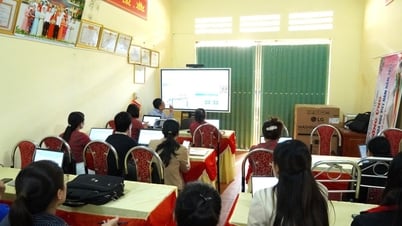































































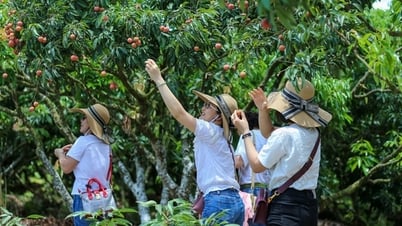












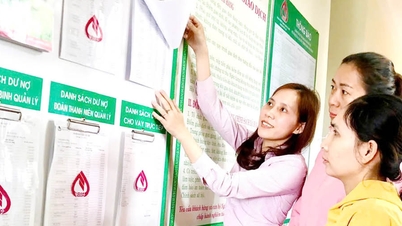



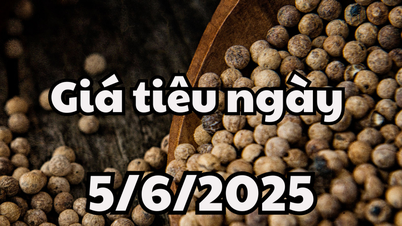








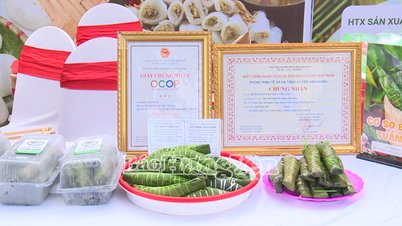





Comment (0)